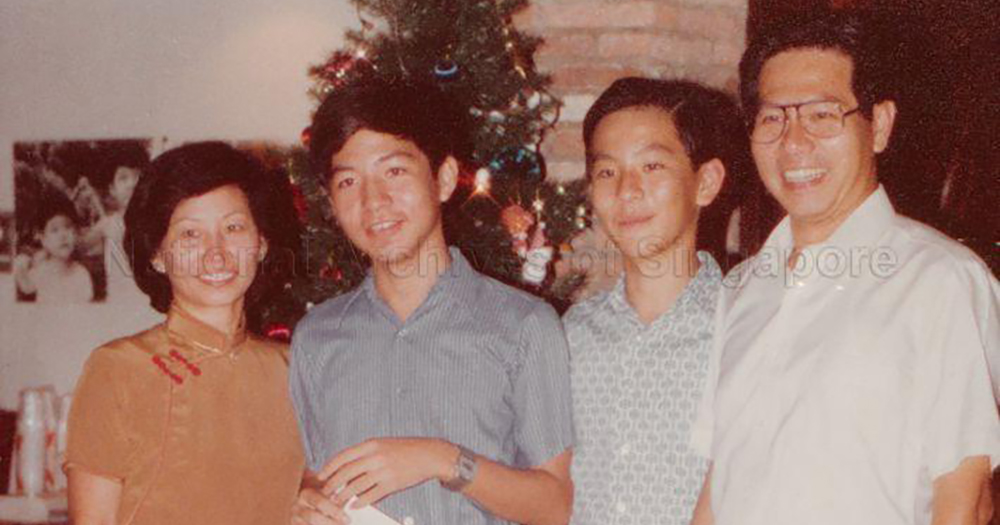Ong Teng Cheong passed away 17 years ago today, on Feb. 8, 2002.
Ong was the fifth president of the Republic of Singapore.
If he were alive today, he would have been 83 years old.
However, his life was cut short at the age of 66 due to lymphoma.
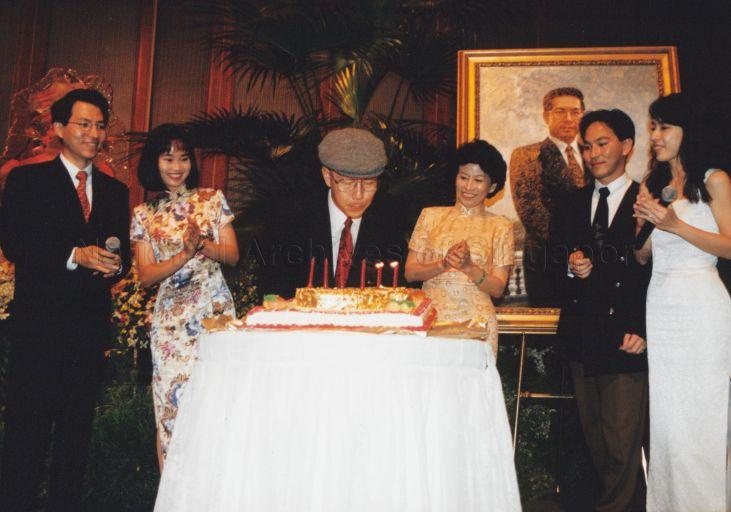 via National Archives of Singapore. Ong Teng Cheong celebrating his 60th birthday in 1996.
via National Archives of Singapore. Ong Teng Cheong celebrating his 60th birthday in 1996.
Beloved statesman
Ong is officially not Singapore’s first elected president, despite being the first to win at the polls.
This technicality stems from the fact that President Wee Kim Wee before him was able to exercise the powers of the Elected President, due to changes in the constitution while he held office.
This technicality was resolved in 2017 with wide-ranging implications on the presidency today.
It will continue to be overlooked though, as Singaporeans still fondly remember Ong as the leader they voted for and who won with the biggest margin at the polls with 58.7 percent of votes, to become one of the country’s most beloved statesmen.
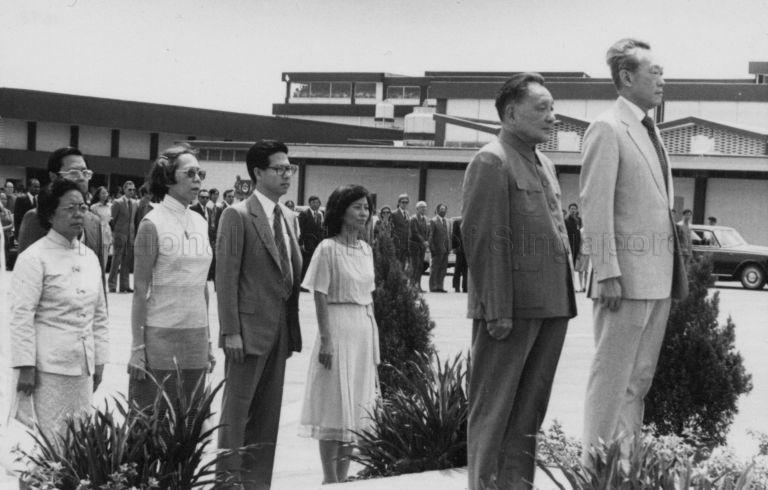 via National Archives of Singapore. Lee Kuan Yew with Deng Xiaoping at a ceremonial welcome at Paya Lebar Airport in 1978. Ong was Minister for Communications and Acting Minister for Culture.
via National Archives of Singapore. Lee Kuan Yew with Deng Xiaoping at a ceremonial welcome at Paya Lebar Airport in 1978. Ong was Minister for Communications and Acting Minister for Culture.
Ong was effectively set on the path to be the people's president after 952,513 votes were cast for him in the 1993 presidential election.
He answered the call to serve as the establishment-backed president, despite being diagnosed with cancer of the lymphatic system just a year earlier in 1992.
What Ong did as president
Ong's political career and nation-building efforts -- he was a proponent of the MRT system and subsequently a deputy prime minister -- as well as his affability are well-known.
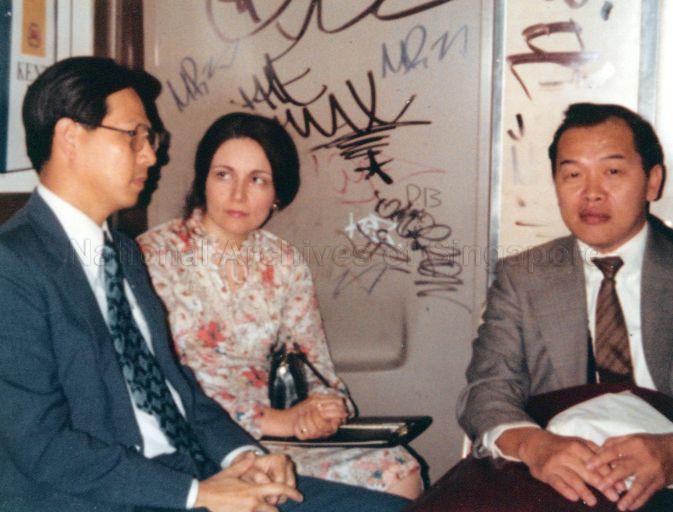 Ong Teng Cheong on a Mass Transit study trip in New York.
Ong Teng Cheong on a Mass Transit study trip in New York.
But it was his contributions as the president of Singapore that made him stand out and talked about nearly two decades after his demise.
As the fifth president of Singapore, Ong served a six-year term from Sept. 1, 1993 to Aug. 31, 1999.
It was in office that the legacy of Ong’s presidency took shape.
It was a period marked by his determination to test the custodial powers of the elected presidency.
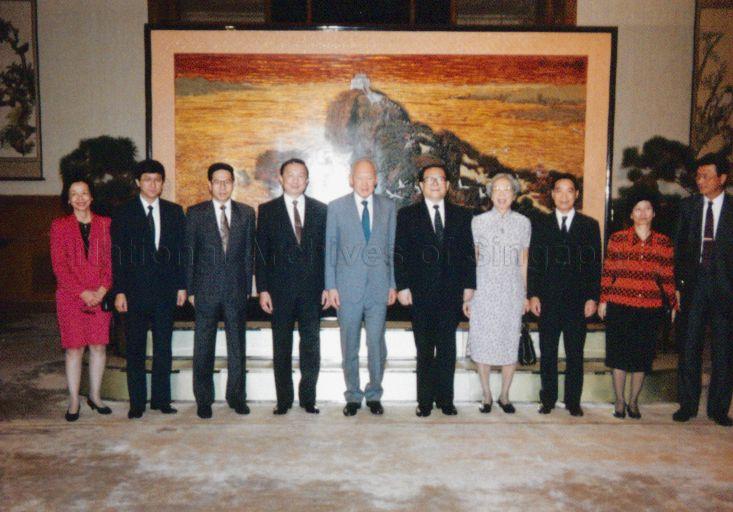 via National Archives of Singapore. Ong Teng Cheong, who was deputy prime minister in a 1992, with prime minister Lee Kuan Yew on a trip to China with Chinese leader Jiang Zhemin.
via National Archives of Singapore. Ong Teng Cheong, who was deputy prime minister in a 1992, with prime minister Lee Kuan Yew on a trip to China with Chinese leader Jiang Zhemin.
From the get-go
In 1994, Ong questioned the government’s interpretation of the constitution when the latter introduced a bill to revise the veto powers of the president.
He then asked for the matter to be referred to a special High Court Tribunal, chaired by the Chief Justice.
When the Tribunal ruled in favour of the government, Ong graciously accepted the decision.
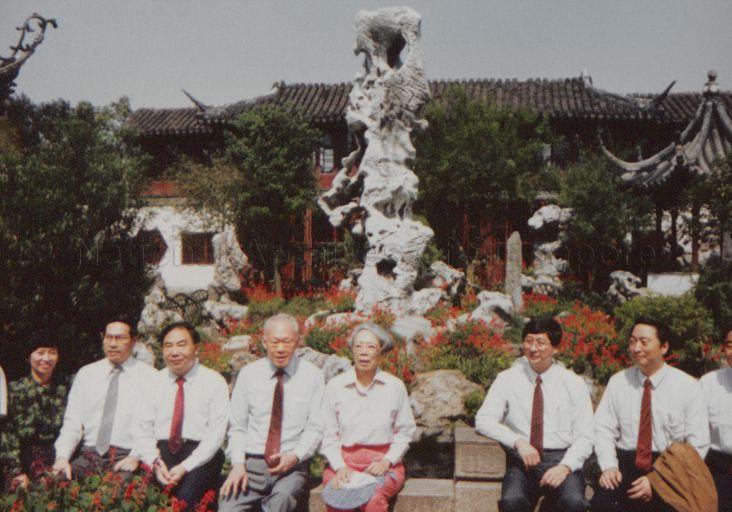 via National Archives of Singapore. Ong Teng Cheong sightseeing in China in 1992.
via National Archives of Singapore. Ong Teng Cheong sightseeing in China in 1992.
CPF matters
In 1997, he refused to approve the Central Provident Fund (CPF) Board’s budget until he was satisfied that it would not draw down on the nation’s reserves.
The events resulted in two major institutional developments.
The first was the creation of a tribunal of judges for constitutional disputes, and the second was a White Paper, which placed on public record the working principles agreed between the government and the president on protecting the nation’s reserves.
Starting charities
Ong’s presidency was also marked by the initiation of many charitable projects, the largest of which is the annual President’s Star Charity, which was launched the year he was elected president and has since gone on to raise millions of dollars for local charities.
An accomplished musician, Ong would also lend a hand to various welfare causes.
He occasionally played the piano in public events and even conducted the Singapore Symphony Orchestra.
Even as the Acting Minister for Culture in the late 1970s, he was determined to transform Singapore from a perceived cultural desert to a city of the arts.
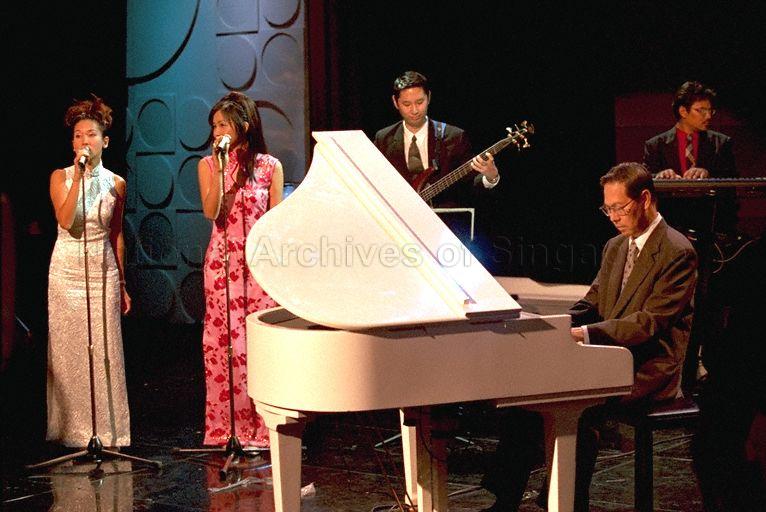 via National Archives of Singapore. President Ong Teng Cheong playing the piano during the 1999 President's Star Charity Show.
via National Archives of Singapore. President Ong Teng Cheong playing the piano during the 1999 President's Star Charity Show.
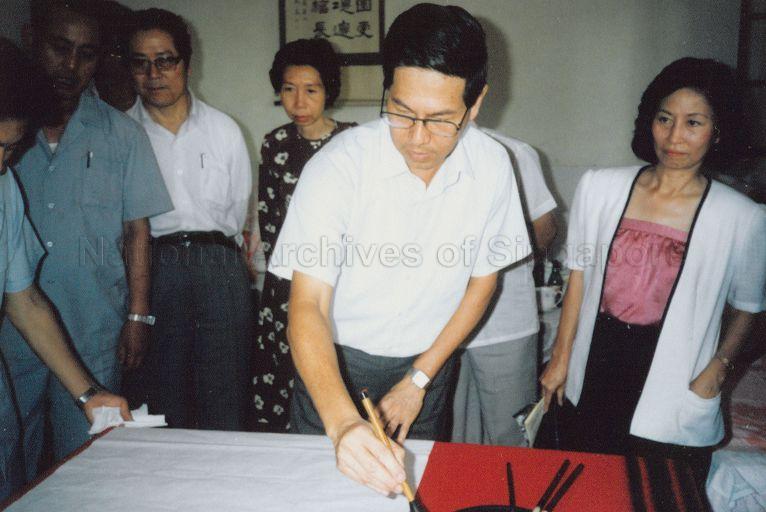 via National Archives of Singapore. Ong Teng Cheong demonstrating his calligraphy skills in 1987 in China. He was then secretary-general of the National Trades Union Congress and second deputy prime minister.
via National Archives of Singapore. Ong Teng Cheong demonstrating his calligraphy skills in 1987 in China. He was then secretary-general of the National Trades Union Congress and second deputy prime minister.
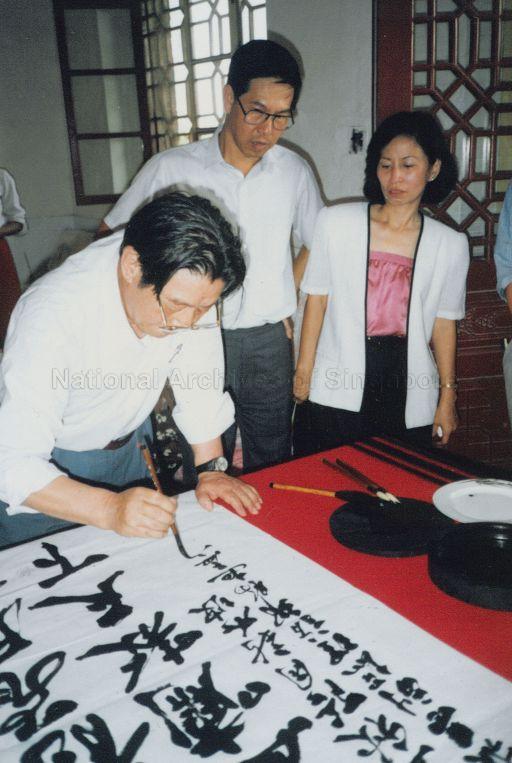 via National Archives of Singapore. Ong Teng Cheong watching a calligraphy demonstration in China in 1987. He was then secretary-general of the National Trades Union Congress and second deputy prime minister.
via National Archives of Singapore. Ong Teng Cheong watching a calligraphy demonstration in China in 1987. He was then secretary-general of the National Trades Union Congress and second deputy prime minister.
He left his mark on the Singapore arts scene, as his efforts led to the first Singapore Festival of the Arts.
Public dispute with the government
Ong also took his role as the guardian of Singapore’s reserves seriously by questioning the type and quantity of assets the government owned.
This episode played out as a public dispute between him and the government over the access of information regarding Singapore’s financial reserves.
Ong’s stand was that he could not carry out his duties if he was unaware of how much reserves Singapore has.
In his later years, he also opposed the sale of POSB (Post Office Savings Bank) to DBS (The Development Bank of Singapore) in 1998 during his last year in office.
He felt that the sale was procedurally inappropriate and did not regard the president’s significance as the guardian of the reserves.
This was due to the fact that POSB at that time was a government statutory board whose reserves came under the president’s protection.
After he was out of office, he told Asiaweek in a 2000 interview that he had a job to do, whether the government liked it or not.
Ong's popularity evident
Ong’s popularity by the end of his presidential term was evident.
After his wife, Ling Siew May, passed away weeks before he stepped down as president, there was an outpouring of condolences from the public.
Before his own death in February 2002 at the age of 66 from lymphoma, Ong had asked to be cremated and for his ashes to be placed at Mandai Columbarium with those of ordinary citizens instead of Kranji State Cemetery, where late dignitaries are usually buried.
After Ong passed away at the Singapore General Hospital, the decision was made for Singapore flags to fly at half mast on the government buildings, including the Istana, to pay him his last respects, despite it being the eve of Chinese New Year.
It was the first time in Singapore’s history this was ever done.
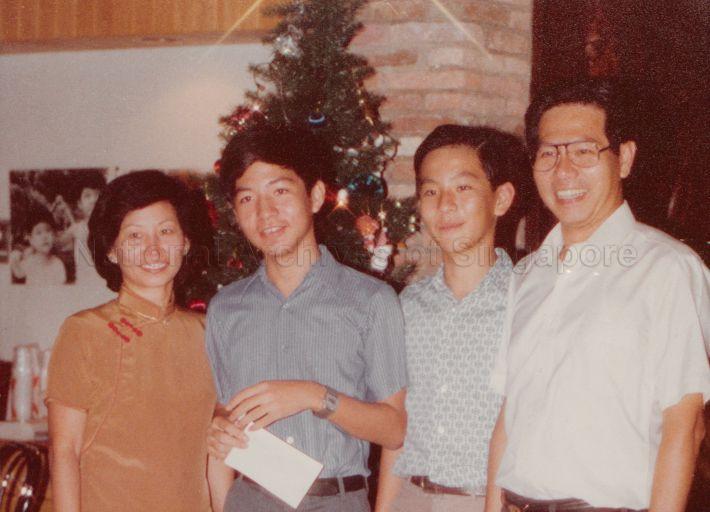 via National Archives of Singapore. Ong Teng Cheong and his family in 1980.
via National Archives of Singapore. Ong Teng Cheong and his family in 1980.
Lionised after death
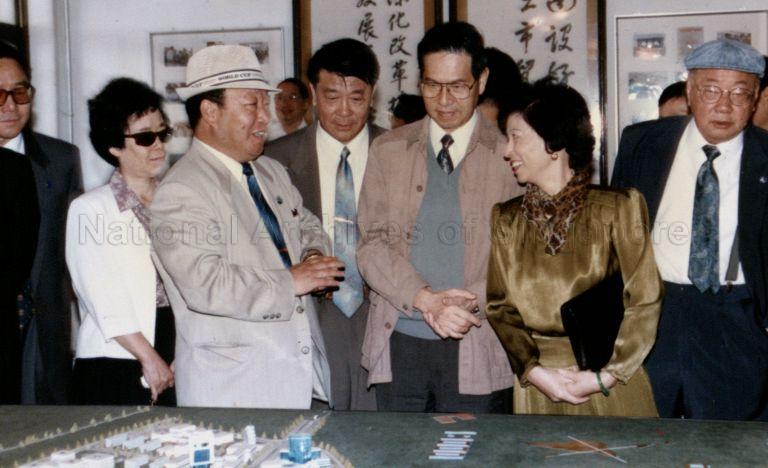 via National Archives of Singapore. President Ong Teng Cheong and the first lady visiting China in 1995.
via National Archives of Singapore. President Ong Teng Cheong and the first lady visiting China in 1995.
However, Ong’s standing as the people’s president was celebrated only after his passing, as his status and achievements have been lionised mostly after his death.
This is perhaps due to the perception that he was the first popularly-elected, and possibly the only president so far, who exercised and tested the custodial powers of his office boldly and fully.
Reflecting on his role as president, Ong said:
“Some people still ask whether my long previous association with the PAP will stop me from acting independently. The answer is ‘no’. My loyalty is first and foremost to the people of Singapore. It has always been so and it will always remain so.”
Interest in Ong still high
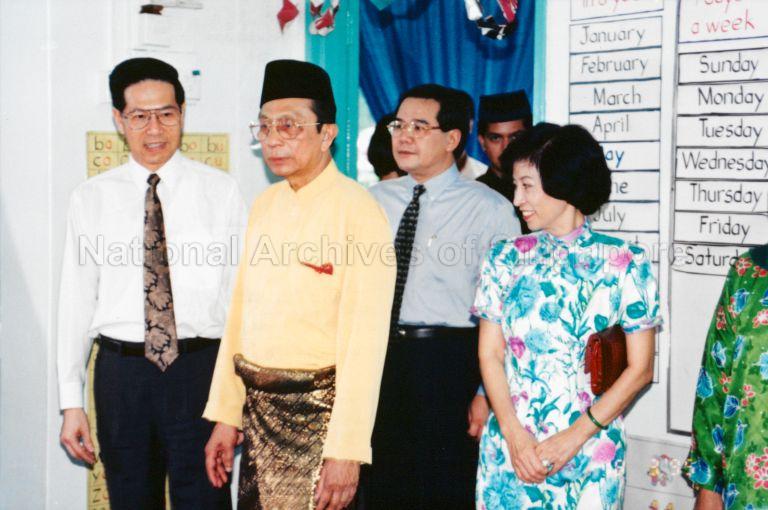 via National Archives of Singapore. President Ong Teng Cheong and Mrs Ong in 1995 after Hari Raya Aidilfitri celebration.
via National Archives of Singapore. President Ong Teng Cheong and Mrs Ong in 1995 after Hari Raya Aidilfitri celebration.
Interest in the first president who won at the polls is still high, even after all these years.
A 2016 interview with Ong's second son, Ong Tze Boon, who is chairman in his late parents' ONG&ONG architectural firm, was met with widespread interest.
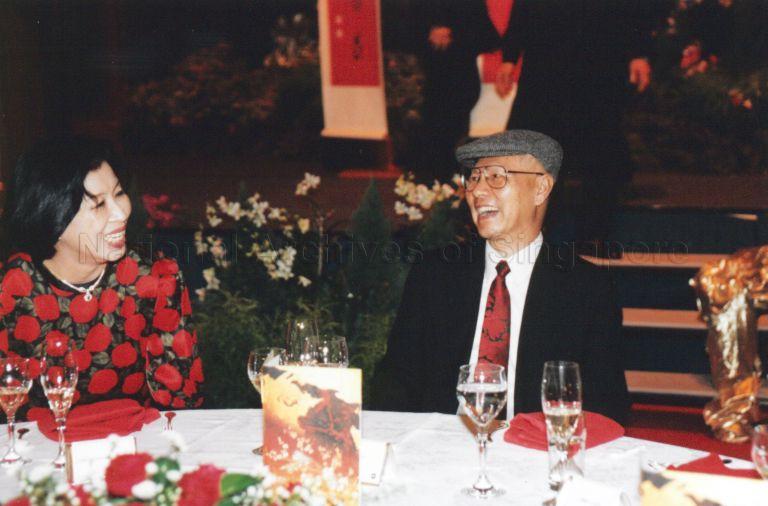 via National Archives of Singapore. President Ong Teng Cheong celebrating his 60th birthday on Jan. 22, 1996. With him was Mrs Goh Chok Tong.
via National Archives of Singapore. President Ong Teng Cheong celebrating his 60th birthday on Jan. 22, 1996. With him was Mrs Goh Chok Tong.
Content that keeps Mothership.sg going
??
Here's how to pair your CNY snacks with beer to look like a true blue connoisseur.
????
What in the world are cashless angpaos?
?⏩?
Finally escape from your CNY fatigue with these heavily discounted cruise fares
??✨
Does your work spark joy ?
??
Millennials are strawberries? Can eat one ah?
If you like what you read, follow us on Facebook, Instagram, Twitter and Telegram to get the latest updates.
